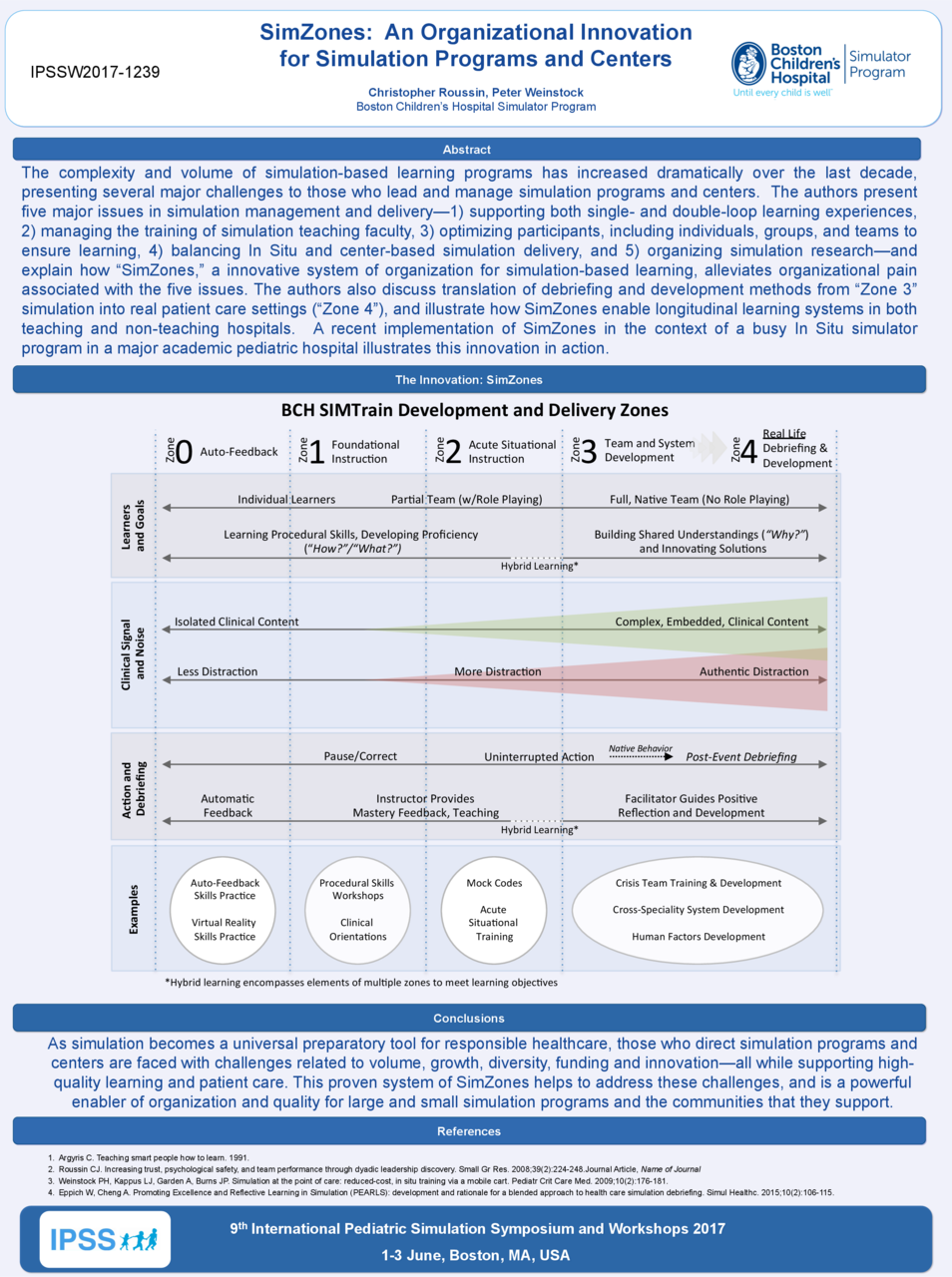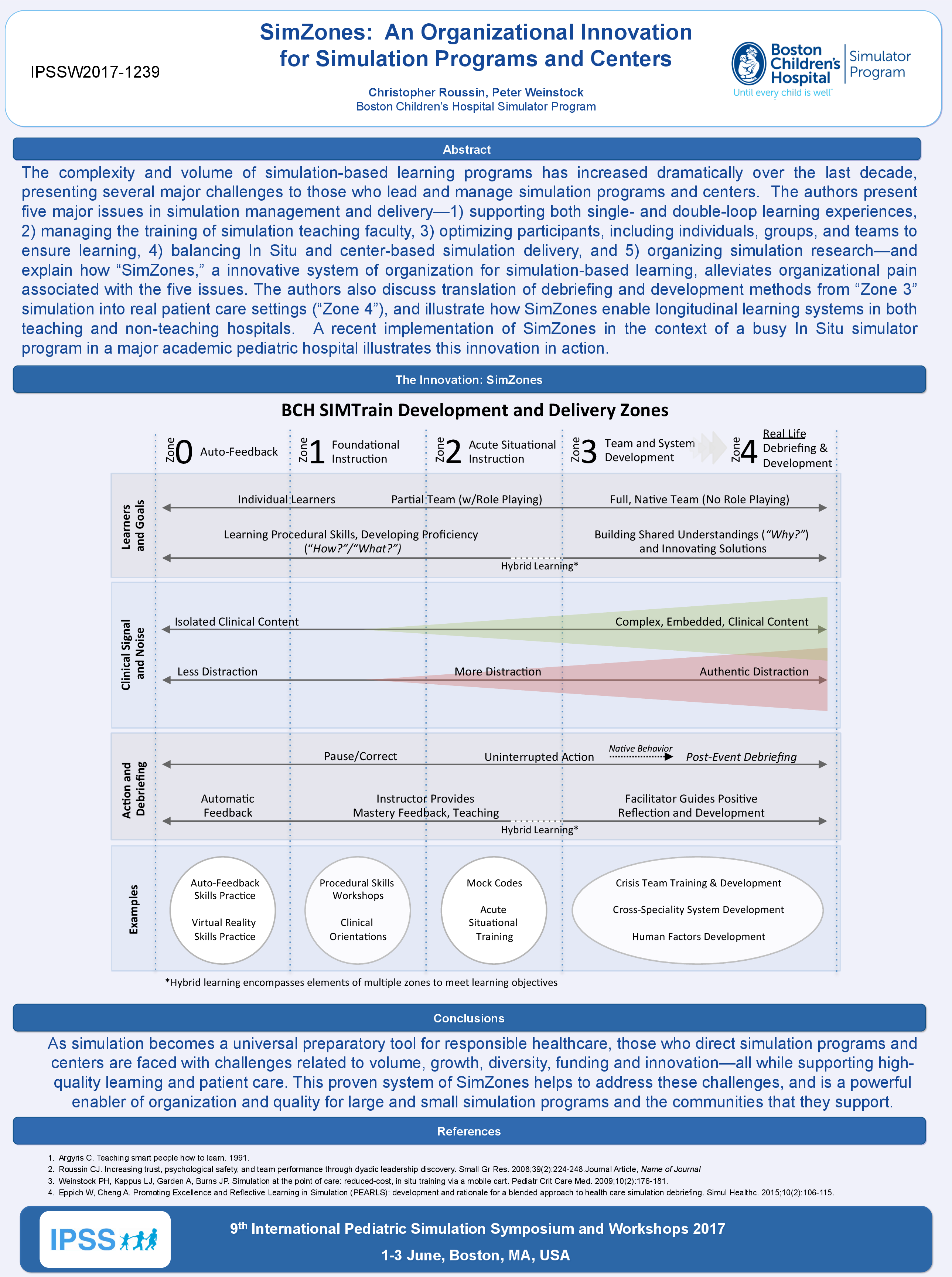Abstract
The complexity and volume of simulation-based learning programs has increased dramatically over the last decade, presenting several major challenges to those who lead and manage simulation programs and centers. The authors present five major issues in simulation management and delivery—1) supporting both single- and double-loop learning experiences, 2) managing the training of simulation teaching faculty, 3) optimizing participants, including individuals, groups, and teams to ensure learning, 4) balancing In Situ and center-based simulation delivery, and 5) organizing simulation research—and explain how “SimZones,” a innovative system of organization for simulation-based learning, alleviates organizational pain associated with the five issues. The authors also discuss translation of debriefing and development methods from “Zone 3” simulation into real patient care settings (“Zone 4”), and illustrate how SimZones enable longitudinal learning systems in both teaching and non-teaching hospitals. A recent implementation of SimZones in the context of a busy In Situ simulator program in a major academic pediatric hospital illustrates this innovation in action.





